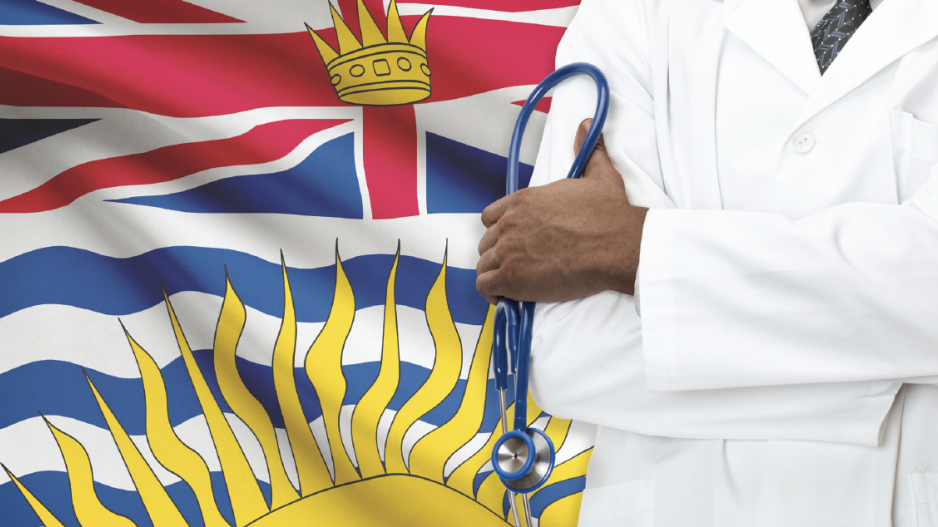Last month, federal Conservative Party leader Andrew Scheer sent a letter to provincial and territorial premiers in which he vowed to increase health transfers if he becomes prime minister after next month’s election.
By addressing this complex topic before the campaign even begins, Scheer seeks to accomplish two goals. The first one is to connect with the one-in-five Canadians who identify health care as the most important issue facing the country. This is a group that includes 32% of Atlantic Canadians, 24% of Canadians aged 55 and over and 22% of women.
The second goal, important from a strategic standpoint, is to effectively issue a pre-emptive strike before the campaign undoubtedly brings allegations that the Conservatives are seeking to establish a “two-tier” health care system.
In British Columbia, health care was ranked as the second most important issue facing the country in July (16%), after housing, homelessness and poverty (24%). With this in mind, Research Co. asked British Columbians about their perceptions of the health care system, which problems should be dealt with and whether they would open their wallets to access specific services.
A quarter of British Columbians (26%) seem to offer a ringing endorsement of the system, saying, “health care in British Columbia works well, and only minor changes are needed to make it work better.” Conversely, 12% of residents believe “health care in British Columbia has so much wrong with it that we need to completely rebuild it.”
This leaves a majority of British Columbians (58%) who believe “there are some good things in health care in British Columbia, but some changes are required.”
British Columbians who are profoundly satisfied with the way health care works outrank those who are deeply dissatisfied by a 2-to-1 margin. Still, there are some differences that merit attention.
Men in British Columbia are more likely to believe that “only minor changes are needed” (30%) than to express a need to “completely rebuild” the health care system (9%). The numbers are not as rosy among women (22% for “minor changes” and 17% for “rebuild”).
When asked to pinpoint the biggest problem facing the health care system right now, almost two-in-five British Columbians (38%) say it is long waiting times. One-in-five (20%) select a shortage of doctors and nurses, 15% believe it is inadequate resources and facilities and 10% pick bureaucracy and poor management.
Other concerns were in the single digits, including lack of a wider range of services for patients (6%), vague legal rights of patients (4%), little focus on preventive care (3%) and insufficient standards of hygiene (1%).
Long waiting times are a particularly big problem for men (41%), Metro Vancouverites (also 41%) and residents of Northern B.C. (48%). In other regions, perceptions are more nuanced.
In the Fraser Valley and the Southern Interior, long waiting times are the biggest issue (31% and 32%, respectively). In the Valley, inadequate resources and facilities ranks second (23%). In the Interior, it is a shortage of doctors and nurses (27%). On Vancouver Island, more than a third of residents (36%) cite a shortage of doctors and nurses, followed by long waiting times (24%).
The fact that long waiting times is the most pressing concern province-wide does not mean that British Columbians are ready to purchase medical services. Almost half (45%) say they would “definitely” or “probably” be willing to pay out of their own pocket to have quicker access to medical services that currently have long waiting times.
Even fewer provincial residents (37%) say they would “definitely” or “probably” be willing to travel to another country to avoid waiting lists and access care promptly. Both options are more popular among residents in the highest income bracket, and least popular with British Columbians aged 55 and over.
So, in the likely event that discussions about health care during the federal election turn into accusations of “two-tier” finagling, it would be wise to remember the feelings of British Columbians.
Only about one-in-eight residents believe the health care system should be “completely rebuilt.” And while waiting times are, understandably, identified as the most important problem, the group that is the least likely to pay out of their own pocket to access medical services—domestically and internationally—is residents aged 55 and over.
Mario Canseco is the president of Research Co.
Results are based on an online study conducted from August 28 to August 30, 2019, among 800 adults in British Columbia. The data has been statistically weighted according to Canadian census figures for age, gender and region in British Columbia. The margin of error—which measures sample variability—is plus or minus 3.5 percentage points, 19 times out of 20.




